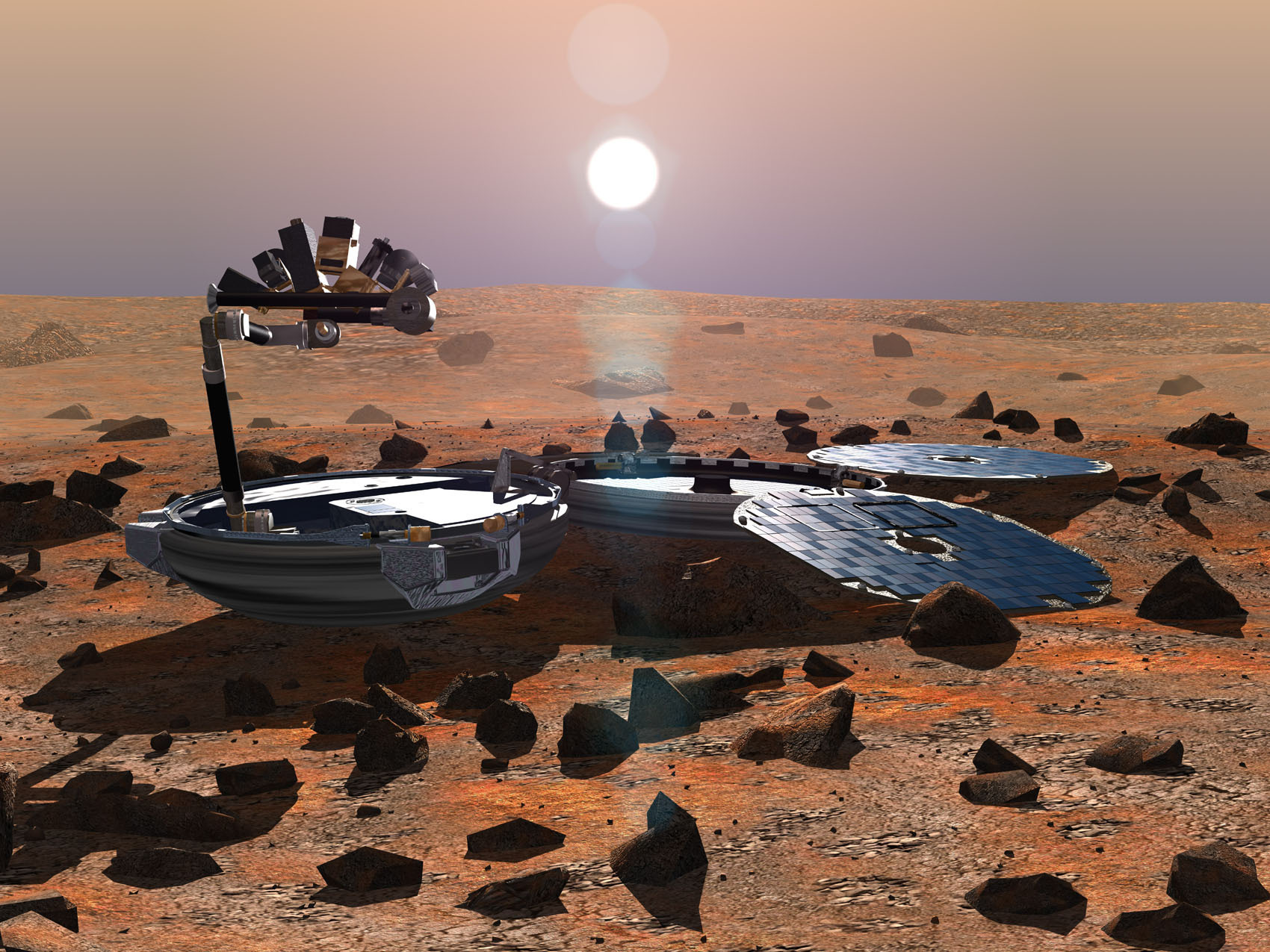Europe’s bold attempt to search for life on Mars will launch as planned in 2020 despite concerns over escalating costs and the spectacular loss of the mission’s lander demonstrator.
European Space Agency (Esa) member states agreed to stump up the extra 440 million euro (£370 million) needed to ensure the future of ExoMars Rover.
The mission, the second stage of a two-part programme costing 1.3 billion euro (£1.09 billion), is due to land a British-built rover on the Red Planet in 2021 to drill into the Martian soil and look for biochemical traces of living or dead microbes.
European science ministers decided to back the mission at a pivotal Esa council meeting in Lucerne, Switzerland.
The space agency’s director general, Jan Woerner, said: “Today I am very confident that we will do it … We need to work hard because it’s not only some rover, we have the payloads from different sources – all of this has to pack together. It’s not an easy thing, but we are confident that we will succeed.”
However he said there had been “no free ticket” from the member states. ExoMars would, at least initially, “eat up” the whole of a 1% per year increase in Esa’s science budget which was also agreed at the meeting.
ExoMars Rover has had a chequered history and come close to being abandoned on more than one occasion.
Originally it was to have been a joint enterprise with Nasa, but the American space agency pulled out and a new partnership was formed with Russia’s agency, Roscosmos.
In May, the launch date was put back two years because of problems with delivering hardware. A technical review then concluded that the mission could be secured only with extra funding.
Mr Woerner made clear at a press conference in Lucerne: “For us, a further delay is no option.”
ExoMars suffered a serious setback in October when the demonstrator lander Schiaparelli, designed to test the rover’s landing system, crashed on the surface of Mars.
Experts have said lessons would be learned from the loss, caused by a glitch that meant the probe sensed it had landed when still more than a mile above the planet’s surface.
The Trace Gas Orbiter spacecraft which carried Schiaparelli to Mars is said to be functioning well. Next year it will start sniffing the planet’s atmosphere for trace gases including methane, which may indicate the presence of life.
A drastic option to continue with the orbiter mission while scrapping the rover was not pursued by Esa member states in the end .
The briefing was also told that Britain had pledged to maintain its stake in Esa’s International Space Station (ISS) activities.
David Parker, the agency’s director of human spaceflight and robotic exploration, said: “The UK has provided the amount of funding requested for the space station and indeed has made some indications about longer term commitment as well, so it was positive.”
The UK has to pay its way on the ISS to have any hope of another British astronaut following in the footsteps of Tim Peake.


